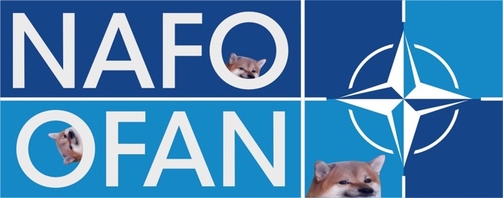Tasting History with Max Miller
Published 20 Sep 2022
(more…)
September 21, 2022
The Medieval Saint Diet
Pierre Poilievre’s (very modern) modern family
In The Line, Rahim Mohamed discusses how the Poilievre family makes it difficult for Liberal propagandists to portray Poilievre as some sort of ultra-nationalist white supremacist (as they clearly would if they could):

Pierre and Ana Poilievre at a Conservative leadership rally, 21 April, 2022.
Photo by Wikipageedittor099 via Wikimedia Commons.
This is a critical moment for any new party leader. Poilievre need only look at his most immediate predecessor, Erin O’Toole, for an example of how quickly it can go wrong. After tacking to the right of rival Peter MacKay to win the party’s 2020 leadership race, O’Toole pivoted sharply to the centre once Conservative party leader, courting labour unions, calling himself a “progressive conservative” and backtracking on a promise to protect the conscience rights of pro-life doctors and nurses. O’Toole’s “authenticity problem” remained a storyline throughout his rocky tenure at the helm of the Conservative party.
Poilievre executed, successfully, an uncommonly combative and partisan frontrunner campaign, making any notion of a centrist pivot a total non-starter. He has tacked even further to the right than O’Toole did as a leadership candidate: branding moderate rival Jean Charest “a Liberal”, sparring with Leslyn Lewis over who supported this winter’s convoy protests first, leading “defund the CBC” chants at his rallies; and, perhaps most brazenly, promising to bar federal ministers from attending the World Economic Forum (a bête noire of far-right conspiracy theorists).
So how will Poilievre (re-)introduce himself to Canadian voters? If his first week as Conservative party leader is any indication, his telegenic, multicultural and decidedly “modern” family will be central to his efforts to cast himself in a softer, more prime ministerial light.
After the results of the leadership vote were announced, the first person to address Conservative party members was not the party’s new leader himself, but his Venezuelan-born wife Ana. Ana Poilievre (née Anaida Galindo) delivered a confident and well-received set of introductory remarks, cycling effortlessly between English, French and Spanish throughout the five-minute-long address.
The most effective moments of Ana Poilievre’s speech centred on her family’s hardscrabble journey from a comfortable middle-class existence in pre-Chavez Venezuela to precariously living paycheque-to-paycheque in the East End of Montreal. “My father went from wearing business suits and managing a bank to jumping on the back of a truck to collect fruits and vegetables,” she reminisced with her family in attendance; adding, “there is no greater dignity than to provide for your own family” to one of the loudest rounds of applause of the evening. These words captured the Galindo family’s distinct immigrant story, yet undoubtedly resonated with thousands of immigrants and first-generation Canadians across the country. (My own parents, for what it’s worth, were forced to start from scratch after being exiled from their birth country of Uganda as young adults.)
Pierre Poilievre returned to this theme in the victory speech that followed: “my wife’s family not only raised this incredible woman, but they came to this country … with almost nothing; and they have since started businesses, raised kids, served in the military, and like so many immigrant families, built our country.” He went on to thank members of his own family, including his (adoptive) father’s same-sex partner Ross and his biological mother Jackie (who gave Poilievre up for adoption after having him as a teenager). “We’re a complicated and mixed-up bunch … like our country,” he later joked.
All kidding aside, no major federal party leader has ever had a family that looks more like Canada. Members of Poilievre’s extended family span multiple nationalities and speak English, French and Spanish as first languages. He has a South American wife, an adoptive father who is in a relationship with another man, and a biological mother who’s young enough to be his sister — Pierre Poilievre is basically a character from the hit sitcom Modern Family. The governing Liberals, who have made identity politics central to their party brand and spent the past seven months trying to connect Poilievre to white supremacism, should be worried.
Radom’s Vis 35: Poland’s Excellent Automatic Pistol
Forgotten Weapons
Published 9 Feb 2016In the 1920s Poland began looking for a new standard military pistol, and tested a variety of compact .380s. The representative from FN brought along an early iteration of the High Power (along with their other entry) even though it was much too large and heavy to meet the Polish requirements. After a couple iterations of testing, it became clear to the Polish Ordnance officers that the High Power was a much more effective service pistol than the compact guns they had been instructed to look for.
Lo and behold, the ultimate choice was a domestic design based largely on the High Power (a direct deal with FN was not an option after Poland’s relationship with FN had suffered through problems with the wz.28 version of the BAR). Toss in a delay to redesign the early decocking mechanism to satisfy the Cavalry (who didn’t realize that the decocker wasn’t actually meant to be used, but rather to just add another claim to the patent), and by 1935 the pistol was finished and formally adopted.
The Vis 35 is one of the best automatic pistols of WWII in terms of both handling and quality. In total 46,000 were made pre-war for Poland’s military, and German occupation forces built another 300,000+ during the war.
(more…)
QotD: Why postwar western economic and humanitarian “interventions” almost always failed
… it is a general truism that the majority of persons who run for office in North America and various European countries do so because they sincerely want to help and improve their communities/countries. However, in all of Africa and most of Asia, persons who seek public office do so for one purpose, and one purpose only: to steal everything that they can get away with. So when some ignorant, naïve, American shows up with buckets full of money, oblivious of the culture and the longstanding, entrenched, corruption, and with an announced intention to make the local community more like an American community, they are welcomed with open arms while suppressing their snickering. This also explains something where Americans exhibit willful blindness: other cultures don’t play fair. Honesty is seen as the trait of fools. Fools are to be taken advantage of. Especially in trade and diplomacy. Just look at China.
Prior to the Cold War, America’s interference in other countries’ internal affairs was practically nonexistent outside of the Caribbean where America’s preoccupation was with the stability in the region. What went on in Egypt, Thailand, Argentina, or Greece was none of our business, nor did we frankly care. However, having just survived the cataclysm of WWII, and the realization that Communism was a danger bent on world domination, and that each country that became Communist made that possibility much more likely changed that laissez faire attitude 180 degrees. Whereas NATO was formed for the purpose of deterring a military attack on Western Europe by the Soviet Union (the generals mentally fighting the last war as is always the case, not realizing that the war now was ideological and propagandistic rather than military), diplomats began to question how to best combat Communist insurgencies in the Third World. The arrived (wrong) conclusion was that the reason a country became Communist was because the dirt-poor people were so desperate that they became Marxists in order to improve their lives, so if the West helped poor countries economically Communists could not gain a foothold. As such, they ignored the fact that most Communist movements are organized and headed not by poor people, but by a cadre of power-hungry middle-class intellectuals.
As has been mentioned, the first approach was with foreign aid. The second was with military intervention, in Korea, Vietnam, Santo Domingo, Grenada, and Lebanon. Although such interventions were mostly successful, they carried a heavy price as American blood was spilled in foreign countries. America’s supposed allies hardly helped at all, including the citizens of the countries (Korea and Vietnam) that themselves were in danger of being conquered by Communist forces.
Armando Simón, “Schlimmbesserung“, New English Review, 2022-06-16.
September 20, 2022
Hannah Arendt in postwar Germany
In Quillette, Roger Berkowitz discusses what Hannah Arendt found when talking to Germans after the Second World War, which she characterized as their collective “escape from reality”:
In 1949, when Hannah Arendt (1906–1975) went to Germany as part of the New York-based Jewish Cultural Reconstruction Commission, she was struck by the way the Germans showed an “at times vicious refusal to face and come to terms with what really happened”. This “escape from reality”, as Arendt named it, meant that the reality of the Holocaust and the death factories was spoken of as a hypothetical. And when the truth of the Holocaust was admitted, it was diminished: “The Germans did only what others are capable of doing”.
The Germans, at times, simply denied the facts of what had happened. One woman told Arendt that the “Russians had begun the war with an attack on Danzig”. What Arendt encountered was a “kind of gentleman’s agreement by which everyone has a right to his ignorance under the pretext that everyone has a right to his opinion”. The underlying assumption for such a right is the “tacit assumption that opinions really do not matter”. Opinions are just that, mere opinions. And facts, once they are reduced to opinions, also don’t matter. Taken together, this led to a “flight from reality”.
The focus of Arendt’s lifelong engagement with the human flight from reality was her encounter with ideologies, specifically Nazism and Bolshevism. In The Origins of Totalitarianism and other texts (especially her essay, “On the Nature of Totalitarianism“), Arendt defines an ideology as a system that seeks to explain “all the mysteries of life and the world” according to one idea. Nazism is an ideology that blames economic disaster, political loss, and the evils of modernity on the Jews — inhuman flotsam who must be exterminated to allow a master race to flourish. Bolshevism, on the other hand, “pretends that all history is a struggle of classes, that the proletariat is bound by eternal laws to win this struggle, that a classless society will then come about, and that the state, finally, will wither away”. The bourgeoisie are not simply class traitors, they are a dying class, and killing them only supports a law of history. As ideologies, both Nazism and Bolshevism insist on explaining the events of the world according to theories “without further concurrence with actual experience”. The result, Arendt argues, is that such ideologies bring about an “arrogant emancipation from reality”.
Because an ideology “looks upon all factuality as fabricated”, it “no longer knows any reliable criterion for distinguishing truth from falsehood”. As reality recedes, ideologies organize society to transform their ideas into living reality. If antisemitism as an ideology says that all Jews are beggars without passports, the fact of wealthy and established Jews must be eliminated. If Bolshevism says that the bourgeoisie are corrupt, they must admit their corruption or be killed. The realization of such ideological realities can be accomplished, of course, through terror.
But even before a totalitarian movement takes power and mobilizes the secret police in the machinery of terror, ideological movements can employ propaganda to deny and nullify facts, or change them. The Nazis, she writes, “did not so much believe in the truth of racism as desire to change the world into a race reality”. Similarly, the Bolshevist ideology that classes were dying was not something real, but something that had to be made real. The purges and terror that Stalin unleashed were supposed to “establish a classless society” by exterminating all social groups that might develop into classes. In both instances, the purpose of the ideology was to transform a mere opinion — race consciousness or class consciousness — into the “the lived content of reality”.
The point, as Arendt concludes, is that “ideological consistency reducing everything to one all-dominating factor is always in conflict with the inconsistency of the world, on the one hand, and the unpredictability of human actions, on the other”. What ideology demands is that man — an unpredictable and spontaneous being — cease to exist as such, that all humans be subjected to laws of development that follow ideological truth. That is why the turn from an unreliable reality to coherent fantasy requires an absolute elimination of human spontaneity and freedom.
The Byzantine Empire: Part 4 – Justinian, The Hand of God
seangabb
Published 1 Jan 2022Between 330 AD and 1453, Constantinople (modern Istanbul) was the capital of the Roman Empire, otherwise known as the Later Roman Empire, the Eastern Roman Empire, the Mediaeval Roman Empire, or The Byzantine Empire. For most of this time, it was the largest and richest city in Christendom. The territories of which it was the central capital enjoyed better protections of life, liberty and property, and a higher standard of living, than any other Christian territory, and usually compared favourably with the neighbouring and rival Islamic empires.
The purpose of this course is to give an overview of Byzantine history, from the refoundation of the City by Constantine the Great to its final capture by the Turks.
Here is a series of lectures given by Sean Gabb in late 2021, in which he discusses and tries to explain the history of Byzantium. For reasons of politeness and data protection, all student contributions have been removed.
(more…)
Pierre Poilievre and the role of the Governor of the Bank of Canada
In The Line, Jen Gerson looks at new Conservative leader Pierre Poilievre’s threat to fire the head of the Bank of Canada if and when he becomes Prime Minister:

Conservative leader Pierre Poilievre at a Manning Centre event, 1 March 2014.
Manning Centre photo via Wikimedia Commons.
In May, Poilievre claimed that Macklem was “surrendering his independence” to the government of the day by using quantitative easing — printing money — to ease the COVID economic crisis. During the party’s English-language debate in Edmonton, Poilievre also said he would fire the governor if he ascended to prime minister.
This, very rightly, ticked off a lot of people. The governor of the Bank of Canada ought to be independent of daily partisan machinations for very good reason; we don’t want the person setting inflation targets to be subject to political pressure, otherwise we would risk a lot more money printing to pay for social programs in the short term, and devaluation of our currency in the long term. So threatening to fire the governor because he or she failed to hew to an incoming government’s wishes is a bad idea. We want that person to stay above the partisan fray.
A Conservative ought to understand this better than most.
Further, much of our inflationary woes is the result of international supply chain issues, which is something beyond the governor’s control. The bank’s defenders have been quick to make this point. Looking at overall increase in the monetary supply, including the significant amounts of money that was pumped into the economy for pandemic relief measures, in addition to the thwack of cash sitting on the banks’ books in the form of potential debt, I suspect that this argument is still highly debatable.
Regardless, the response to Poilievre’s comments from the bank itself was interesting. Although he didn’t call for the firing of his boss, Paul Beaudry, the deputy governor of the Bank conceded that Poilievre had at least a smidgen of a point.
“The aspect that we should be held accountable is exactly right,” Beaudry told a news conference in June. “Right now we completely understand that lots of Canadians can be frustrated at the situation,” he said. “It’s difficult for a lot of people. And we haven’t managed to keep inflation at our target, so it’s appropriate [that] people are asking us questions.”
Macklem himself acknowledged that he had misjudged the possibility for a serious inflationary period back in April. He deserves praise for admitting this! It’s difficult for people in senior roles to admit they were wrong and seek to course correct. One might even argue that his humility on this point demonstrates a personality that is particularly well-suited for his role.
So I want to reiterate that I think threatening to fire Tiff Macklem is a bad idea. It directly undermines the independence of his office, and it places blame on the bank for inflation, when the causes of that inflation are, at best, not his fault, and at worst, still not perfectly understood.
That said — again, messing with the independence of the bank is bad, m’kay — there is a historical precedent for this kind of institution-meddling chicanery. The last politician to threaten an unpopular Bank of Canada governor for political gain was that notable far-right populist … Jean Chrétien. That was back in 1993, in a situation that almost perfectly mirrors the economic and political dynamics of today.
In the ’90s, the incumbent Conservatives had appointed Bank of Canada governor John Crow, who had set interest rates to about seven per cent in order to keep inflation in check. If that figure, which is closer to historical norms than we like to remember, makes you eye your mortgage renewals a little warily, so it should. The Liberals, who were gunning to take over the government from the Conservatives, had argued that Crow’s obsession on maintaining low inflation had worsened a recession; they wanted Crow to prioritize reducing Canada’s unemployment rate instead.
Of course, if that sounds like a potential prime minister taking swipes at an ostensibly independent agent of the Bank of Canada, well, that’s because that’s exactly what it was. And media at the time recognized this at the time.
I think this is another case of a politician indulging in a bit of “bad policy but good politics” rhetoric. Unless he actually means it…
The Evolution of the Rifleman’s Uniform 1860-1990’s
Queen’s Own Rifles of Canada Regimental Museum
Published 30 Nov 2020See the evolution of the rifleman’s uniform throughout most of our history.
You can also read more about this evolution on our Museum website:
https://qormuseum.org/history/timelin…
(more…)
QotD: Why purple was such a rare colour in the flags of the pre-industrial era
Today, we are used to the effectively infinite range of colors offered by synthetic dyes, but for pre-modern dye-workers, they were largely restricted to colors that could be produced from locally available or imported dyestuffs. If you wanted a given color of fabric, you needed to be able to find something in the natural world which, when broken down could give you a chemical pigment that you could transfer to your fabric in a durable way. That put real limits on the colors which could be dyed and the availability of those colors. Some colors simply couldn’t be produced this way – a good example were golden or metallic colors. If something in a dress was to be truly golden (and not merely yellow), the only way to do that prior to synthetic dyes and paints was to use actual gold, weaving small strands of ultra-thin gold wire into the cloth or embroidering designs with it. Needless to say, that was something only done by the very wealthy. Alternately, if the dye for a given hue or color came from something rare or foreign or difficult to process (for instance, in all three cases, Tyrian or royal purple, which came from the murex sea snails – if you have ever wondered why no country has purple as a national color this is why, before synthetic dyes, coloring your flags and uniforms purple would have been bonkers expensive), then it was going to be expensive and rare and there just wasn’t much you could do about that.
Bret Devereaux, “Collections: Clothing, How Did They Make It? Part IVa: Dyed in the Wool”, A Collection of Unmitigated Pedantry, 2021-04-02.
September 19, 2022
There’s a difference between “caring what kids think” and “pandering for kids’ attention and affection”
Rob Henderson wonders why so many adults these days are clearly desperate for the approval of young people:
During my recent re-watch of the entirety of Mad Men, which takes place in the 1960s, a recurring thought entered my mind: This was the last generation where young adults behaved like they were older than their real age. Don Draper is around thirty-five at the start of the series, and carries himself in a more adult manner than many 45 year olds today.
Recently, Abigail Shrier quoted a physician and psychologist who stated that “Fifty years ago, boys wanted to be men. But today, many American men want to be boys”.
Until the early 1960s, young people acted older than their actual age. Now, older adults pretend to be younger than their actual age.
Which is perhaps one reason why boomers are so easy to mock. They don’t act their age.
[…]
About two years later, I was at a breakfast gathering with some other students on campus. Our guest was a former governor and presidential candidate. He was gracious, and spent most of the time answering questions from students.
And in his answers, he continually returned to variations of the same response: “We screwed up, and it’s up to you guys to fix it. I’m so happy to see how bright you all are and how sharp your questions have been, because you will fix the mistakes my generation made.”
This mystified me. This guy was well into his sixties, with a lifetime of unique experiences in leadership roles, was telling a bunch of 20-year-olds (though I was a little older) that older adults are relying on them.
In the military, we thought of those senior to us as the leaders. It was okay to give feedback, of course. Commanding officers would regularly consult lower ranking and enlisted members to see what was working and what could be improved. But that happens only after getting through the filter of the initial training endeavors.
I remember in the first week of basic training, our instructor declared, “I don’t want any of you [expletive] thinking you are doing anyone a favor being here. I could get rid of all of you clowns and have your replacements here within the hour.” (This was 2007, well before the recruitment crisis).
My 17-year-old brain heard that thought, yeah, he’s probably right. I thought of the bus loads of other ungainly young guys I saw stepping off and being confronted with “Pick ’em up, and put ’em down” and other mind games from the instructors while waiting in the endless in-processing lines.
So then I got to college and learned that even though any seat, at least at selective schools, can be filled immediately with a bright applicant (top colleges reject thousands of them each year), students are never ejected for disrespecting professors or anyone else. In the military the first message was, you are a peon and less than nothing and we can easily have you replaced (this changes as you advance in rank, of course — at least to some degree). In college, the first message was, you are amazing and privileged and a future leader (and marginalized and erased) and you will never lose your position here among the future ruling class. That feeling of whiplash will forever linger in my mind.
[…]
Older adults crave validation from the youth, which is one reason they are mocked. Young people sense their desire to be seen as cool and deprive them of this by taunting them.
This desire for esteem may be why older adults won’t exert any authority in response to energetic young conflict entrepreneurs who yell at them or threaten them.
Older adults want to be on the side of youth. So desperate to pencil themselves out of the “old” category. Every parent wants to be the “cool parent”, every professor wants to be the “cool” professor. You can be cool and still be an authority figure. Maybe decades of imbibing the worst of U.S. pop culture made everyone forget this.
Albania – Hitler’s Latest Ally? – WAH 078 – September 18, 1943
World War Two
Published 18 Sep 2022The German Nazi Genocide of the Jews surpasses four million deaths, while the Soviet Union and US step up oppression against some their own citizens.
(more…)
“… the Royal Family has always seemed less like a business enterprise than a giant open-air prison”
The editors at The Line have a rather unusual view of the monarchy, or perhaps more accurately, of the Royal Family itself:

The Royal Family at Buckingham Palace for the Trooping of the Colour, 30 June, 2015.
Photo by Robert Payne via Wikimedia Commons.
We have a soft spot for the monarchy, here at The Line. We believe that as an organizing principle of our system of government, the Crown provides a decent balance between effectiveness and accountability. And while the idea of our head of state residing in a foreign country seems perverse, as a practical matter the physical distancing of the sovereign in London, and the institutional distancing via the Governor General, helps Canada sidestep what would otherwise be yet another occasion for national recrimination.
So, call it two cheers for the monarchy.
That the Queen was a model of duty, decorum and discretion throughout her long reign is undeniable, and there’s not much to add on that front that hasn’t been spread over square miles of newsprint over the past week. By the same token, she and her husband raised a rather problematic set of boys, of whom the best (Edward) that can be said is that he’s a nullity. But again, there’s been more written on this than one could safely consume in a lifetime.
But we’d like to say a few things about the Royal Family itself. The Royals have long described themselves not as a family, but as The Firm — a corporate entity and business enterprise that has extensive land holdings. It pokes its fingers in countless pies, and employs an army of secretaries and assistants and advisers and servants. It has been described as an enormous, bureaucratically organized machine that dictates and determines the lives of its members.
Yet to us, the Royal Family has always seemed less like a business enterprise than a giant open-air prison. A well-funded and nicely appointed prison to be sure, but a prison nonetheless.
What’s the difference between a complicated overbearing bureaucracy and a jail? Where does the line between compliance end and incarceration begin? It can be hard to say, but the key difference can be found in whether or not you have the right of exit. As Harry put it in his infamous interview with Oprah Winfrey: “My father and my brother, they are trapped. They don’t get to leave.”
But beyond that, it is found in how you treat those who try to change things, or more importantly, those who try to escape. Diana tried to change things, and got destroyed for her efforts. Her second son has attempted an escape, and he’s paying an enormous price.
Diana was no saint obviously, and Harry is a dim fellow who married poorly and has not always exercised the best judgment. But who could, under the circumstances? How could any human be reasonably expected to behave properly, to act normally, to judge wisely, given the insane combination of internal pressure, public expectation and media scrutiny that is a non-negotiable part of the royal package? A panopticon is no less carceral for being well-funded.
With the accession of Charles to the throne as King Charles III, there have been a number of articles published running through the main plot points of his life, with a great deal of focus on his romantic life, his marriage to Diana, and ultimately his reunion with the great love of his life, Camilla. What is remarkable is to read about the number of women he proposed to, prior to Diana, who saw the monarchy for what it was, and turned him down. It’s a testament to how much Camilla must really love the old fart that she prefers a life imprisoned with him than free without.
City Minutes: Crusader States
Overly Sarcastic Productions
Published 13 May 2022Crusading is one thing, but holding your new kingdoms is a much trickier business. See how the many Christian states of “Outremer” rolled with the punches to evolve in form and function over multiple centuries.
(more…)
QotD: Representative government
If it’s to work at all, representative government has to be representative. That is, it must be consented to by the governed. But not only did we not consent to be ruled this way, we couldn’t. Just to take the most obvious problem: We have no idea who our rulers actually are.
Hawaiian judges are our kakistocracy‘s public face, but all the decisions that matter are made long before the hacks in black get involved. As we know, we Americans commit, on average, three felonies a day. If, when, and how these come to the State’s attention are almost completely random. This is true for any law, actually, and because it is, it’s not really an exaggeration to say that your livelihood, and often your actual freedom, depends on what side of the bed the cop got up on this morning.
If The Authorities notice you when they’re in a good mood, you skate. If The Authorities are in a bad mood, though — tired, hung over, had a fight with the spouse, whatever — you’re screwed. What actually happens to you depends on the lawyers, a.k.a the most incestuous little fraternity on the planet. Whether they choose to prosecute or not, and for what, and what deals they make over a drink or seven determine what happens to you once you get in front of hizzoner … who, of course, is also butt-buddies with all the lawyers who appear in his chambers, since he was one of them not too long ago and they remain his entire social circle.
Who in his right mind could possibly agree to this? No, forget “right mind” — it’s simply not possible for anyone, not even someone as far out on reality’s fringes as the SJWs, to consent to this. Those “people” (in the strict biological sense) think houseplants have human rights, but not even they would agree to have their life’s course determined by two dimbulbs with great hair and ugly neckties cutting deals with each other in a dive bar.
But so long as we fetishize the form of “representative government,” it can’t be otherwise. As folks in Our Thing never tire of pointing out, had The People ever been consulted about our preferences, at any time after 1963, we’d still be living in a White Christian nation with a solid manufacturing base and a minuscule military footprint. If it were possible to throw the bums out, we would’ve thrown out every bum on every ballot since at least Calvin Coolidge. But we can’t throw the bums out, because the process is rigged.
Severian, “Form > Process > Outcome”, Rotten Chestnuts, 2019-09-06.
September 18, 2022
Forget #GamerGate already, here’s #NAFO!
At Samizdata, Perry de Havilland briefly recaps the story of #gamergate and the incomprehension of the “official” gaming press and PR departments of gaming companies that their actions to ridicule and shutdown the “racist/sexist/homophobe” #gamergate activists not only failed but drew more attention to the #gamergate issue, and compares it to a new instance of the same phenomenon:
Fast forward to 2022 and behold #NAFO: the North Atlantic Fellas Organisation.
And who are “the fellas”? A large and growing online pack of attack dogs countering, dare I say smothering, official Russian troll factory output, as well as other pro-Kremlin talking heads online. And their mascots are daft cartoon dogs (variations of a Shiba Inu to be precise). If journalistic collusion was a constant target of #GamerGate, the Russian troll farms are the modern analogy to that, constantly targeted and smothered by NAFO posting either pro-Ukrainian counter-narratives or just ridiculing or flagging up pro-Russian ones.
Many people, particularly those operating within institutions, don’t understand #NAFO for same reason PR departments of various video games companies & press outlets didn’t (and still don’t) understand #GamerGate.
Is #NAFO engaged in “information warfare”? Absolutely. They even get a shout out from the Ukrainian Ministry of Defence. But they are not managed out of an office in Langley, Virginia nor by some adjunct of the Ukrainian intelligence services. #NAFO is a hashtag, a phenomena, it isn’t “run” by anyone, because it doesn’t need to be. Like GamerGate, NAFO is a confluence of the motivated willing in every timezone on the planet.
And just as GamerGate had a single original trigger, which was then largely forgotten as the “movement” grew and started attacking larger more juicy prey, NAFO started as a fund raising effort for the Georgian Legion (a now battalion sized unit of about 600 within the Ukrainian army made up mostly of Georgian volunteers). At blinding speed, NAFO rapidly morphed into a wider distributed online effort supporting Ukraine in the “information space”.







